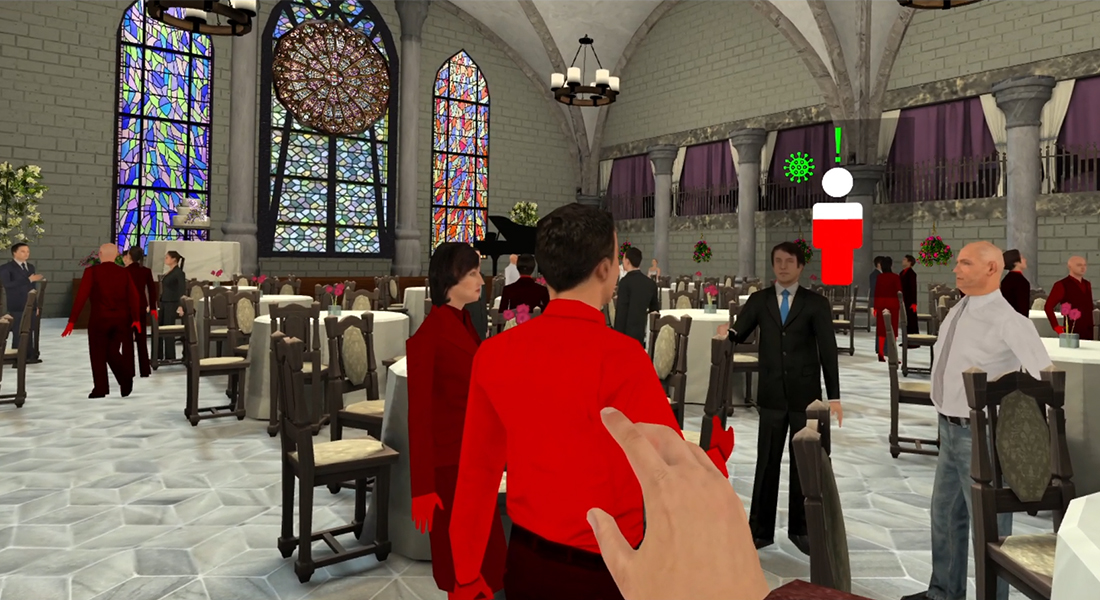Vaccine hesitancy

A study about the effects of VR on people's willingness to get vaccinated. Participants were asked about their vaccine intensions, and after they experienced a VR simulation. We performed 3 instances of this experiment.
One was with the busy square simulation: Here people in the square could either be infected or vaccinated and you had to navigate the square. You could either be a healthy person trying not to get infected, or you could be a sick person, trying not to infect others. The game showed participants how hard it is to avoid spreading a disease in busy spaces.
We observed that experiencing the simulation increases people's willingness to become vaccinated. However, we noted that people had a high intention to get vaccinated to begin with, as we performed this study in the middle of the pandemic, before the vaccines were available, but when a lot of people couldn't wait to get vaccinated.
Another part of this project was an online study, where anyone over 18 with access to an Oculus Quest (1 or 2) could participate, as long as they had not already been vaccinated against COVID-19.A total of 507 eligible participants downloaded and played the application. We found that the VR intervention was effective in increasing COVID-19 vaccination intentions, both when only personal benefits. as well as personal and collective benefits of vaccination were communicated, with significant retention one week after the intervention.
The final development in this project was the Wedding Vaccine simulation, that we developed to test how empathy could influence people's willingness to get vaccinated. The basic idea of the simulation was the same as in the busy square version - you had to navigate a busy room full of people either vaccinated or infected. This time however, you were embodied as an older person and you yourself could not get vaccinated. Participants experienced how hard it is to navigate the COVID reality when you are vulnerable, and they learned about the idea of herd immunity this way.
In the simulation, you, as an older person got invited to your granddaughter's wedding, but are reluctant to go, because many people there might not be vaccinated.
We tested this study in the Museum fur Naturkunde in Berlin, and had over 600 participants try our simulation!
We found that people's vaccination intentions increase after trying a simulation, however, empathy did not seem to play a role in this change.
See publications related to this project here:
